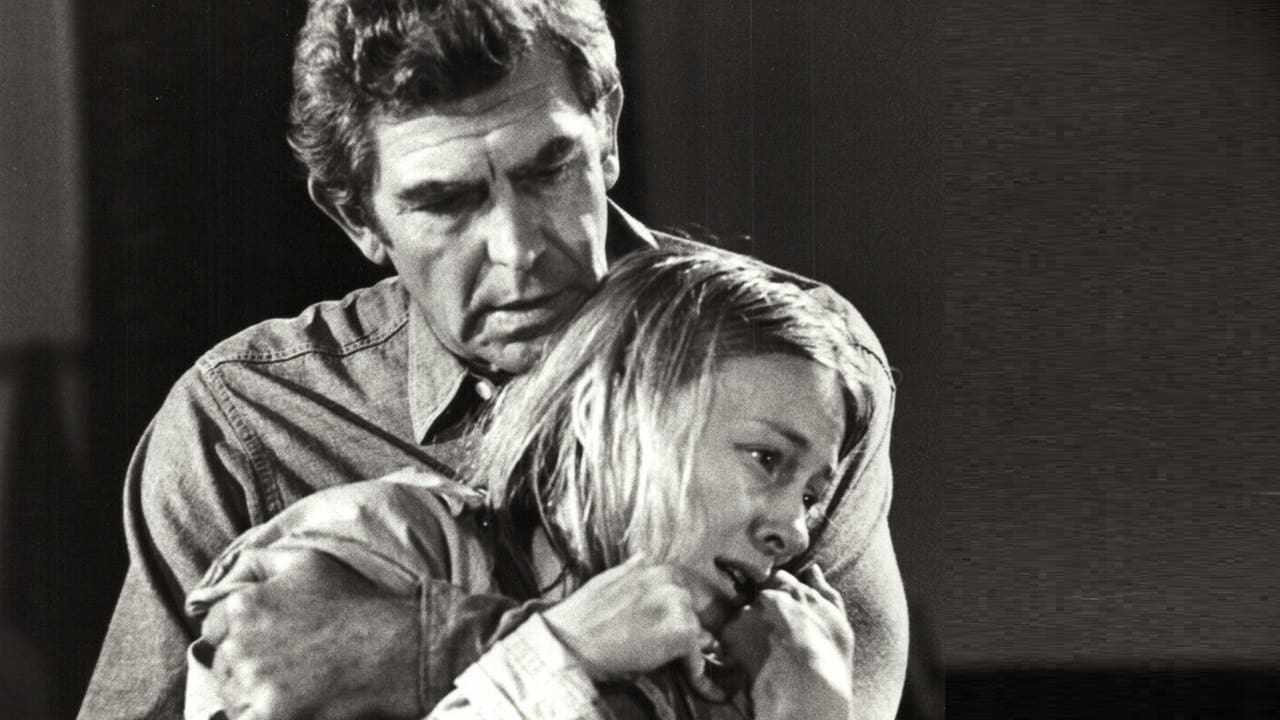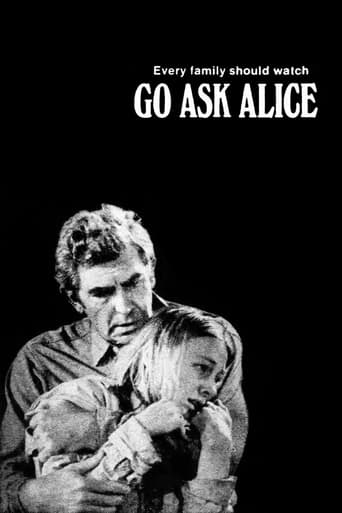

This movie is all talk & no action. Alice narrates through the whole movie probably as a cost saving thing. If you're going to use narration, you can just have your stars sit there while the voice over talks. Things happen off camera and we see the end result so we miss out on important details. At the end, Alice supposedly finally OD'd which we know simply because her mother is now narrating. She doesn't even have the decency to OD on camera. You know you're in trouble when a disclaimer comes on at the beginning stating that the material has been cleaned up for family viewing. They should remake it on HBO or something. If this movie was made in an attempt to deter children from drug use, the only question the kid will have for their parents is, "Daddy, what was this movie about?" It's interesting only in an historical context.
... View MoreWhile, since L.S.D. is highly illegal and teenagers aren't just getting it these days, it's hard to see this movie as anything but extreme. However, the Sixties and early Seventies, those were the years when peace, love and happiness were all that mattered. The hippie years, when drugs and booze was just available. Alice, age 15, is the girl in this movie who is sort of a shy nerd until she meets a popular girl and gets invited to a party where she accidentally drinks doped soda and joins a group of stoned hippie kids all the time. Soon she's living on the streets doing literally anything to get high again, and this leads her into a dangerous world of sex and abuse until she is finally able to find the courage to call her family and get help.This film is great for nostalgic value alone, and although it seems silly and exaggerated today, L.S.D. was a real problem. It's a drug that causes hallucinations and what appears to be temporary insanity.The soundtrack was amazing, I wish all of it was available on youtube. The acting was pretty good and the movie remained interesting the whole way through. Go Ask Alice was based on a true story and a book as well, Alice is the name given to an anonymous girl who died of an overdose while hooked on drugs. This movie is totally worth watching and very interesting.
... View MoreIn the early 1970s, America was still in denial about drugs. Like the parents of Alice in this film, "other" kids use drugs and the risk to their own kids is minimal. So, this film where the fictionalized "girl next door" and her fall into drug dependence is meant to wake up folks to the potential horrors of drugs.Jamie Smith-Jackson stars as Alice, though oddly established actors like William Shatner, Ruth Roman and Julia Adams are listed at the top of the credits--and Jamie in the middle. I say this is odd because Shatner, Roman and Adams really were barely in the movie at all and the film is about Alice! As for these screen veterans, Shatner and Adams especially did great impersonations of blocks of wood. Perhaps the film made them too out of it--and they were a bit hard to believe as their characters weren't fully established. As for newcomer Smith-Jackson, she did a pretty good job helming this film.The big star of the film, however, is the writing. The story didn't come off as trite or that whitewashed (at least for a made for TV movie) and was good entertainment and a nice public warning about drugs. A very good and well made film overall. And, considering I have worked in drug rehab and with prison populations, I have seen first hand the horrors that might befall those who make the choice to use drugs of all types--including alcohol.
... View MoreI saw Go Ask Alice as a high school student, shortly after it was made. Admittedly I was a relatively sophisticated film viewer, but my reaction to it was that it was a weak effort. I found the acting wooden and the script heavy-handed. One of the scenes where the girls discover something that shocks them completely failed to shock me, perhaps because I wasn't either young enough or narrow-minded enough to find it more than mildly surprising.I would call it a period piece -- not as over-the-top as some of the more hysterical what's-wrong-with-our-kids efforts generally classified as Exploitation Films, but unfortunately not far short of that. It has the same sort of "one little slip from the straight and narrow and you're sliding toward hell" assumptions as many other morality plays, and that actually weakens it as a propaganda/educational (take your pick) effort.Maybe the book was better. Or maybe you needed to be younger (and/or female?) and see it before "the 60's" (which actually ran partly into the 70's) started fading. Or maybe you needed to be predisposed toward the lesson it was trying to teach. But as a film (never mind as a message) it just didn't work for me. If I'd had any interest in drugs (which I never have), I don't think this would have changed my mind... and it didn't succeed in convincing me that it was even a good composite picture, never mind a portrait of an individual.I will admit I have not viewed it since then. But since part of what others have discussed has been how it affected them, I felt a comment on how it failed to affect me was appropriate.Just one ex-kid's reaction. "This is the kind of movie that is liked by the kind of people who like this kind of movie. I'm not one of them."
... View More